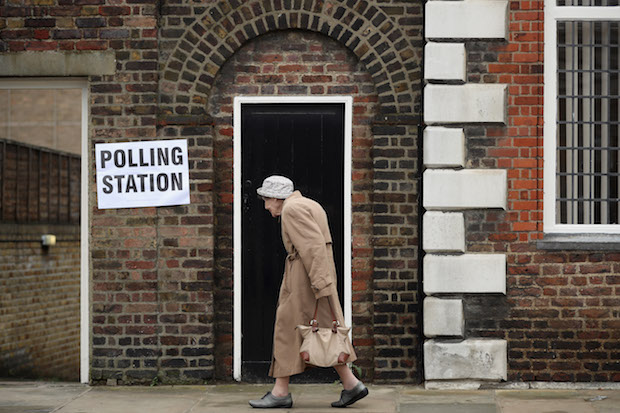In my Dispatches documentary on the generation wars, which has just aired on Channel 4, I interviewed Iain Duncan Smith about the pensions triple lock. He thinks it has turned into a monster, and discussed how it led to his resignation. He cut working-age benefits and believed that he had cut to the bone. But he was asked to go further. The ‘triple lock’ – that pensions should rise by earnings, inflation or 2.5 per cent, whichever was the highest – was intended a piece of spin. But when inflation hit zero, that turned out to be one of the most expensive pledges David Cameron ever made.
Duncan Smith told me how, when he was Work & Pensions Secretary, he’d be briefed about how the ‘triple lock’ had turned into a monster as its costs started to spiral.
‘I remember looking at a spreadsheet of this. The guys at the DWP were showing me and they were showing me that, just on an annualised basis that it had gone from what was forecast of a few hundred million to well over a billion above that. It was rising fast and they, they all said: the Treasury knows this, everybody knows this is growing. I think… it cost an extra 18 billion.’
If you compare the original forecasts for the Triple Lock pension pledge and the actual costs, it emerges as the most expensive misjudgement of David Cameron’s premiership. The side effect is a pretty big achievement: pensioners, a word for so long synonymous with low income, are now no more likely to be in poverty than anyone else.
In fact, triple lock looks set to pull off a near-convergence between the income of pensioner and working-age households.
Again, this wasn’t intentional. The triple lock meant that the state pension rose way above inflation, and the extra money it cost meant the cuts for working-age became worse. Another five years of the triple lock means could well mean breaking away from income parity, and having pensioners better-off than workers. It makes no sense.
I put to IDS what everyone thinks: that politicians now bribe the elderly because they’re more likely to vote, so cannot withdraw the benefits no matter how much the cost. Yes, he said, that’s about the size of it.
‘Once you start something with that particular group it’s very difficult to change, obviously, for political reasons. People say that’s a bit selfish but the truth is that governments need to get re-elected.’
I also interviewed Ben Page, head of Ipsos MORI, who said the data does make the case for bribing the oldies:
‘It’s a pretty sensible thing for any politician to do simply because older people vote. The turnout amongst the over-70s is 80 per cent or 90 per cent depending on the election. The turnout among the under 30s has been struggling to hit 50 per cent.’
So, he says, the lesson is clear: ‘If you’re a politician, go to the old people’s homes. Don’t bother with youth clubs’. The brutal truth is that old people are worth more than the young, he says.
‘Much more, three or four times more than the young because not only are there plenty of older people but they’re living longer. There’s a bulge in the population at that age group, but also they actually vote – so it’s a double whammy.’
The maths is depressingly simple. There are about 10.5m people over 65, of whom 78pc voted last year’s election – giving about 8m voters in that age group. There are just under 6m under-25s entited to vote, of whom 43pc voted. So about 2.5m voters. So as a group, the over-65s are three times as electorally valuable as the under-25s.
The oldies didn’t ask to be bribed and the ones I spoke to were all anxious about the plight of the young. Similarly, we didn’t find a single young person who resented the elderly. Sammy, one of the Millennials that I spoke to for the documentary, put it well: “I don’t blame the grannies, I blame the government.”
The undeclared philosophy underpinning George Osborne’s budgets was that government should be at the service of pensioners, who cannot look after themselves, rather than the working-age, who can. As ever with Osborne, his priorities were closely aligned with voting patterns.
My conclusion from all of this: there has never been a better time to be young than right now. But government is making it tougher for the young to move from welfare into work because it’s bribing the oldies, and seems unable to stop. You don’t have to buy into the generational jihad narrative to think this could evolve into a pretty serious problem. There’s a lot of goodwill between the generations, but this is in danger of being eroded by discriminatory government policy – embodied by the triple lock. It has to go, and if it doesn’t then the generational jihadis might end up having a point.







Comments